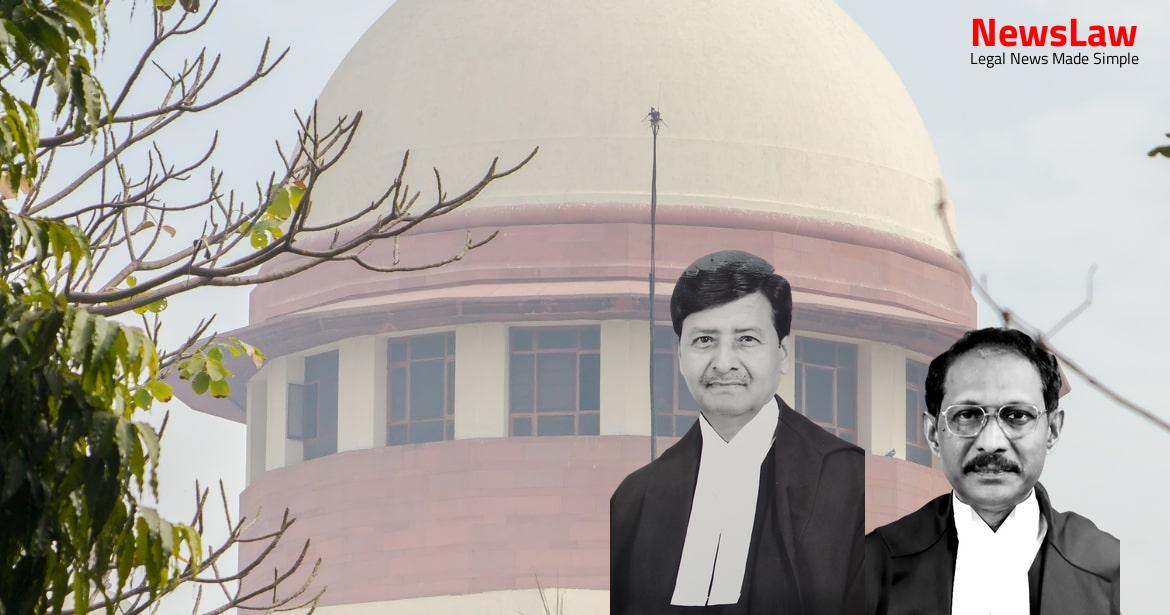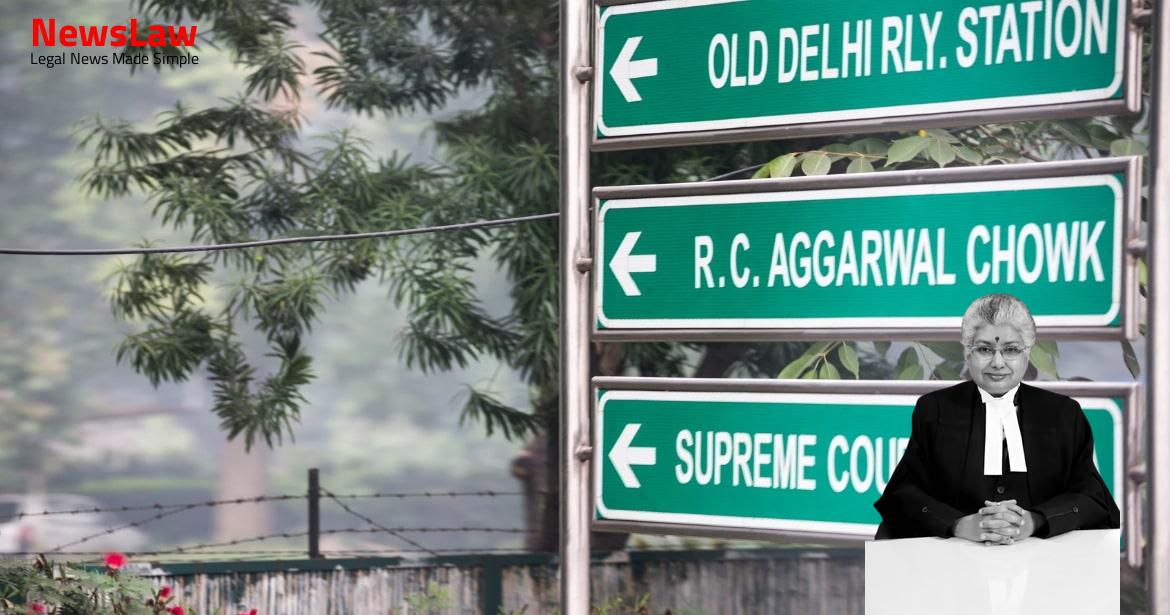The recent legal case delves into the intricate analysis conducted by the court regarding the reinstatement of an individual in a Constable post due to suppression of information. The court’s decision sheds light on the significance of legal considerations when dealing with false declarations in employment matters. Stay tuned for a detailed exploration of the legal implications in this insightful case.
Facts
- The employment notice for the post of Constable in the Railway Protection Force (RPF), including Railway Police Special Force (RPSF), was published on 27 February, 2011.
- The appellant participated in the selection process, qualified in the written examination and physical efficiency test, and was sent for training.
- During training, the appellant was discharged based on clause 9(f) of the employment notice dated 27 February, 2011 and Rule 67.2 of the RPF Rules 1987.
- An FIR was registered against the appellant on 4 April, 2011, which led to his prosecution. He was acquitted by the competent Court on 12 August, 2011.
- The respondent alleged that the appellant did not disclose this prosecution in the attestation form, leading to the dismissal of the writ petition by the High Court.
- The appeal before the Supreme Court challenges the High Court’s decision based on the alleged suppression of information/false declaration.
- The Division Bench of the High Court of Delhi upheld the order of discharge dated 24 April, 2015
- The discharge was based on clause 9(f) of the employment notice no.1/2011 dated 27 February, 2011 and Rule 67.2 of the RPF Rules 1987
- The High Court’s decision was a result of the interpretation of the employment notice and relevant rules
Also Read: Admission Deadline Adherence in Medical Courses
Analysis
- Clause 9(f) of the RPF Rules 1987 prohibits the appointment of candidates with adverse reports on their antecedents and character.
- False declaration is considered an offense and can lead to disqualification, criminal charges, and dismissal.
- Flexibility and discretion are allowed in decision-making based on the circumstances, including the nature of the lapse.
- Suppression or false information may be condoned in trivial cases that do not affect fitness for a position.
- Employers must consider all relevant facts and circumstances, including the nature of the offense, before taking action.
- Specific information required in attestation/verification forms must be disclosed, vague information need not be provided.
- Employers must act cautiously and consider all rules/instructions before canceling candidature or terminating employee services.
- Suppression of material/false information does not guarantee automatic discharge/termination from service.
- The nature of the offense and its impact on suitability for the role must be evaluated before taking any action against an employee.
- Guidelines provide for the consideration of various factors in determining the impact of suppression on appointment or service continuance, depending on the nature of the post and duties.
- Employers have the discretion to appoint candidates subject to the decision of pending criminal cases of trivial nature.
- Reasonable and objective exercise of power is essential, considering the impact on the candidate’s suitability for the role.
- Employers should not act arbitrarily and must consider all relevant aspects before making decisions regarding suppression of information or false declarations.
- Candidates must provide true information regarding any convictions, acquittals, arrests, or pending criminal cases.
- Employers can consider special circumstances while terminating or cancelling services for false information.
- Employers must adhere to government orders, instructions, and rules when making decisions.
- Recourse may be taken if there is suppression or false information about past criminal involvement.
- The respondent in the case Rajasthan Rajya Vidyut Prasaran Nigam Limited v. Anil Kanwariya was terminated for not disclosing his conviction by a competent court while applying for the job.
- The court upheld the termination, citing the non-disclosure of the conviction as a valid reason for the action taken.
- The judgment in Avtar Singh was referred to, emphasizing the importance of disclosure of convictions in job applications.
- The nature of the criminal case was trivial and should not have been the sole factor for discharge
- The competent authority did not consider the nature of the post and duties to be discharged by the recruit in making the decision
- The order of discharge dated April 24, 2015, is not sustainable
- The judgment of the Division Bench of High Court of Delhi is not valid and should be set aside
Also Read: From Nominee to Disqualified: Supreme Court Scrutinizes Age Evidence, Declares Election Invalid
Decision
- The appellant is directed to be reinstated in service as a Constable as per the employment notice no. 1/2011 dated 27 February, 2011.
- The appellant will not receive arrears of salary for the period he was not in service but will be entitled to notional benefits like pay, seniority, and other consequential benefits.
- No costs are awarded in this case.
- The Division Bench’s judgment dated 17 November, 2015, and the orders of discharge dated 24 April, 2015, and 23 December, 2021 are quashed and set aside.
- Necessary orders for reinstatement shall be passed within one month from today.
- All pending applications are disposed of as a result of this judgment.
- The appeal is successful and allowed.
Case Title: PAWAN KUMAR Vs. UNION OF INDIA (2022 INSC 499)
Case Number: C.A. No.-003574-003574 / 2022



